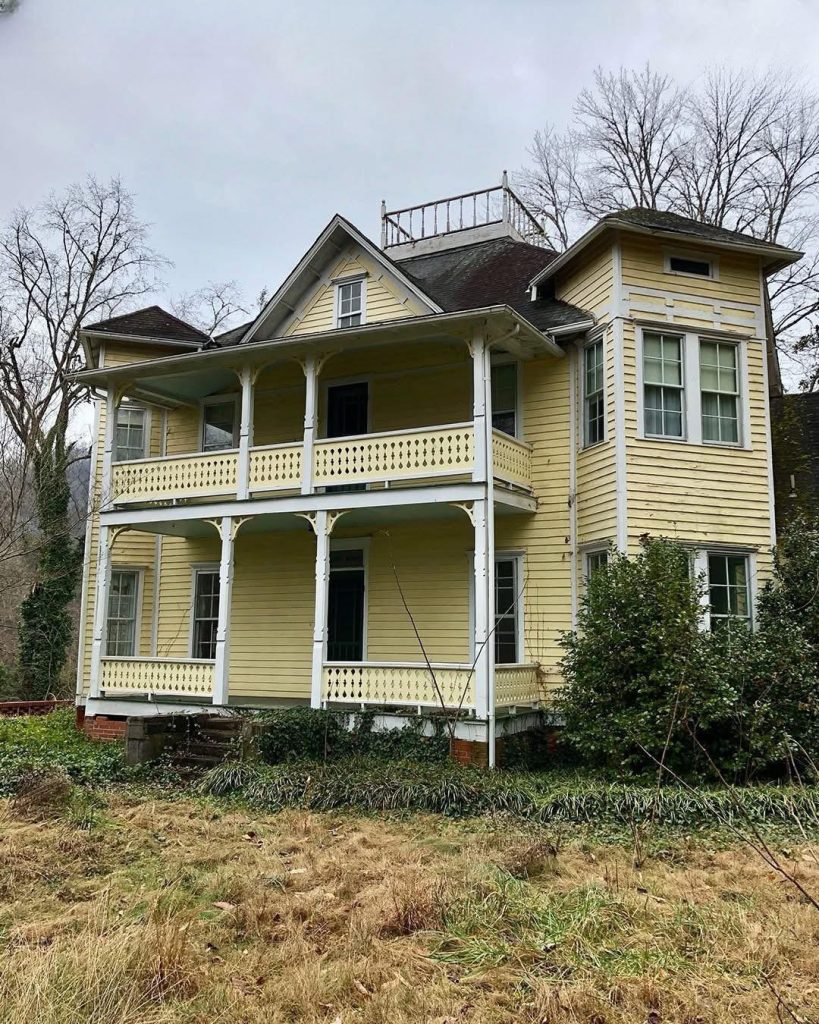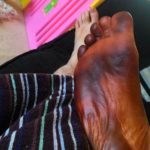They say time heals, but grief doesn’t keep a calendar. Thirteen years after my father died, I still found him everywhere—in the way the kettle hissed, in the slant of afternoon light, in the itch to call someone who would never pick up. He wasn’t just my dad; he was my entire world. My mother left the day I arrived. He stayed for everything after.
I hadn’t set foot in his house since the funeral. The silence that day felt predatory, like it knew exactly where to sink its teeth. I locked the door and left the key on a chain I couldn’t bring myself to wear. I never sold the place, though. I told myself I’d go back when I needed old documents. That was easier than admitting I just wasn’t brave enough.
The day finally came. I stood on the porch with the copper key warming in my palm. “You can do this, Lindsay,” I whispered, and immediately felt like a liar. This wasn’t a house. It was a lung still trying to breathe without its heart.
The oak tree beside the steps lifted its leaves to the wind. He planted it the day I was born and said, “Strong roots, kiddo. Reach for the sky, but hold on to the ground.” I pressed my forehead to the door. “I don’t know how to do this without you,” I told the wood, then turned the key.
For one split second, some gentle, traitorous corner of my brain pretended I heard him: “Welcome home, kiddo.” Reflex made me answer, “Dad?” The echo swallowed the word and gave me back nothing.
I told myself I was there for a file, nothing else. No wandering. No excavation of memories. Then I opened the attic hatch, and the dust rose like a congregation.
Boxes. Faded sweaters. A half-empty tin of mints. A flannel of his that still kept a ghost of his cologne. A photo of us at my graduation, his hand on my shoulder, his grin a lighthouse. I pressed my face into the flannel and said, “You promised you’d see me get through college.” The jacket had no answers, but I could almost hear him anyway: “I’m sorry, pumpkin. I would’ve moved heaven to get there.”
I kept digging until I saw it: a scuffed leather bag wedged behind old paperbacks. I knew that bag—weekends, laughter, us on the floor with controllers and ridiculous snacks. My hands shook as I unzipped it. On top lay a folded piece of paper with my name in his handwriting.
We will play together after you pass the entrance exams, pumpkin! I’m really proud of you!
The attic tilted. “You didn’t get to see it,” I sobbed. “I passed, Dad. You were right about me.” I pressed the note to my chest. I already knew what the bag held: our old game console.
Racing was our ritual. He was untouchable; I was all elbows and bad timing. After every loss, he’d ruffle my hair and say, “One day you’ll beat me, but not today.” I’d throw a dramatic fit, and he’d add, “It’s just a game. The real race is life, and you’re already winning.”
I carried the console to the living room like it was an urn. The TV groaned to life, the startup music chimed, and there it was: a ghost car sitting at the start line—his record, captured and replayed forever. This game saved your fastest run as a faint, transparent version of your car, driving the same perfect lines again and again, waiting for someone to catch it.
“You left me a race,” I whispered. My mind snapped back to the last night we played, before the hospital. “Promise me you’ll keep racing, even when I’m not here,” he’d said. I hadn’t understood. Now I did.
I wrapped my fingers around the controller. “Alright, Dad. Let’s play.” Three… two… one… go.
His ghost shot forward with the arrogant ease I remembered. Flawless turns. No wasted motion. If laughter had a steering wheel, it would’ve sounded like his. “Push, kiddo,” I could almost hear. “You’re holding back.” “I’m trying,” I said to the empty room, ridiculous and crying and somehow lighter than I’d felt in years. We went lap after lap. I got closer. I learned his lines the way I’d learned his advice, by repetition and love.
Hours later, I finally edged ahead. The finish line winked. One more breath and I’d win. One more breath and his ghost would disappear from the top of the leaderboard, replaced by mine. My thumb hovered. “If I let you win, do you stay?” I asked the air. The ghost car didn’t answer. It never could.
“I miss you every day,” I told the screen. “Sometimes I still dial your number.” My thumb lifted. I let him pass. His ghost crossed first.
It hurt like grace.
I took the console home. Every now and then, on the days the hospital where I work feels heavier than my bones, I turn it on and sit cross-legged like a teenager. I tell him about my patients—the stubborn one with kind eyes, the brave one who reminds me of him. I pick his track and let his ghost pull away in the first curve, the way he always did.
“You’d tell me to take a break,” I say, selecting the race again. “You’d say you’re proud. You’d tease me about the mess in my sink.” The music loops. His car drifts. Something inside me softens. I’m not ready to let him go—maybe I never will—but I can let him back in as something more than ache.
One night I finished a race behind him and stood at the window, the city a necklace of light. “If you can see me,” I said, “I’m okay. Not perfect. But okay.” The console hummed. I rested a hand on its warm plastic. “Every time I race you, I get a piece of you back.”
I fell asleep with the controller in my palm and a smile that hurt my cheeks. “Same time next weekend?” I whispered. In the quiet, I swear I heard, “Wouldn’t miss it for the world, pumpkin.”
Love doesn’t die; it changes its shape. Sometimes it’s a voice that lives in the kitchen light or a hand you still feel in the spaces between your fingers. Sometimes it’s a ghost car that refuses to leave the track, pulling you forward, asking you to try. I’ll catch him one day. Not today. Today, I just want to race with my dad.


